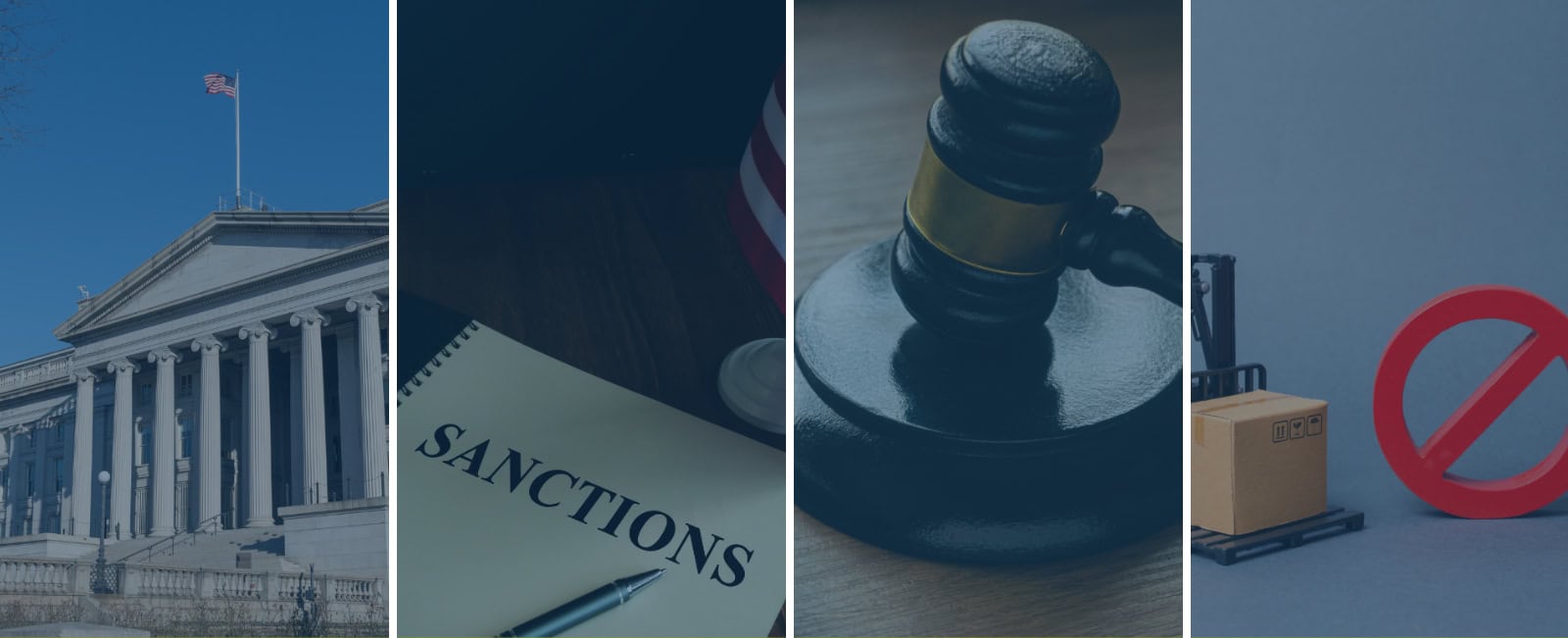Protocol to the Agreement on Trade and Economic Cooperation between the U.S. and Brazil relating to Trade Rules and Transparency
The Office of the U.S. Trade Representative announced that an agreement between the United States and Brazil relating to trade rules and transparency enters into force today, February 2, 2022, following the completion of each country’s procedures.
According to the USTR release, the agreement (referred to as a “Protocol” and signed in October 2020) modernizes a trade agreement from 2011 by adding new commitments on trade facilitation, regulatory practices, and anti-corruption—based on the relevant chapters of the agreement between the United States, Mexico, and Canada.
Source: https://ustr.gov/sites/default/files/files/agreements/tifa/ATEC%20US-Brazil%20Protocol.pdf
The America Competes Act of 2022
The U.S. House of Representatives today passed H.R. 4521, the America COMPETES Act of 2022—legislation that includes provisions addressing the United States-China trading relationship as well as other general trade measures. House passage is just one step in the legislative process. The bill must be passed by the Senate and signed by the president before it can become law.
The title of the bill—the American Worker and Trade Competitiveness Act—includes provisions that would:
- Reauthorize and modernize Trade Adjustment Assistance (TAA) programs
- Extend and reform the Generalized System of Preferences (GSP) by adding a new environmental requirement and updating the labor criteria to align with trade agreements
- Extend the Miscellaneous Tariff Bill (MTB) legislation and eliminate or reduce duties on certain imports
- Strengthen U.S. international trade laws to prevent “unfairly traded goods” from exploiting the de minimis import threshold
- Authorize the U.S. Trade Representative (USTR) to take strategic steps to improve supply chain resiliency
- Strengthen U.S. anti-dumping and countervailing duty laws to protect U.S. workers and to address China’s anti-free market trade practices that distort the global market
- Reaffirm the U.S. government’s commitment to the World Trade Organization (WTO)
- Allow U.S. Customs and Border Protection (CBP) to update its staffing model “to better respond to the challenges of the modern trading system”
Source: https://rules.house.gov/sites/democrats.rules.house.gov/files/BILLS-117HR4521RH-RCP117-31.pdf
United States and Japan reach tariff agreement on steel products under Section 232
The United States and Japan released a joint statement announcing a new “232 tariff agreement” to allow historically-based sustainable volumes of Japan’s steel products to enter the U.S. market without the application of Section 232 tariffs. According to the Announcement of Actions on Japanese Imports Under Section 232, the United States will replace the existing 25% tariff on Japan’s steel products under Section 232 of the Trade Expansion Act of 1962 with a tariff-rate quota (TRQ), effective April 1, 2022.
Ethiopia sanctions regulations
OFAC released for publication in the Federal Register a final rule adding regulations to implement an executive order concerning Ethiopia sanctions regulations. According to the final rule, OFAC intends to supplement the regulations with a more comprehensive set of regulations, which may include additional interpretive guidance and definitions, general licenses, and other regulatory provisions.
Summary
The president in September 2021 issued Executive Order (E.O.) 14046, “Imposing Sanctions on Certain Persons with Respect to the Humanitarian and Human Rights Crisis in Ethiopia.” In E.O. 14046, the president found that the situation in and in relation to northern Ethiopia—which has been marked by activities that threaten the peace, security, and stability of Ethiopia and the greater Horn of Africa region—constitutes an unusual and extraordinary threat to the national security and foreign policy of the United States and declared a national emergency to deal with that threat. OFAC is issuing these regulations to implement E.O. 14046 (which appears in appendix A of the regulations).
Additionally, OFAC is incorporating three general licenses that were previously issued on OFAC’s website into the regulations. The regulations are being published in abbreviated form at this time for the purpose of providing immediate guidance to the public. OFAC intends to supplement these regulations with a more comprehensive set of regulations that may include additional interpretive guidance and definitions, general licenses, and other regulatory provisions.
Source: https://public-inspection.federalregister.gov/2022-02722.pdf
U.S. regulations implementing executive order, Chinese military-industrial complex sanctions regulations
The U.S. Treasury Department’s Office of Foreign Assets Control (OFAC) released for publication in the Federal Register a final rule adding regulations to implement an executive order related to securities investments that finance Chinese military companies. According to the final rule, OFAC intends to supplement the regulations with a more comprehensive set of regulations, which may include additional interpretive guidance and definitions, general licenses, and other regulatory provisions.
Summary
The president in November 2020 issued an executive order (E.O. 13959) finding that China is increasingly exploiting United States capital to resource and to enable the development and modernization of its military, intelligence, and other security apparatuses. The president, therefore, found that China’s military-industrial complex, by directly supporting the efforts of China’s military, intelligence, and other security apparatuses, constitutes an unusual and extraordinary threat, which has its source in substantial part outside the United States, to the national security, foreign policy, and economy of the United States and declared a national emergency with respect to that threat.
In E.O. 14032, issued in June 2021, the president found that additional steps are necessary to address the national emergency declared in E.O. 13959, including the threat posed by the military-industrial complex of China and its involvement in military, intelligence, and security research and development programs, and weapons and related equipment production under the China’s military-civil fusion strategy.
In addition, the president found that the use of Chinese surveillance technology outside China and the development or use of Chinese surveillance technology to facilitate repression or serious human rights abuse constitute unusual and extraordinary threats, which have their source in whole or substantial part outside the United States, to the national security, foreign policy, and economy of the United States and expanded the scope of the national emergency declared in E.O. 13959 to address those threats. OFAC is issuing today’s regulations to implement E.O. 13959, as amended by E.O. 14032.
Source: https://public-inspection.federalregister.gov/2022-03378.pdf
U.S. executive order, Ukraine-related general licenses
President Biden has signed an executive order concerning Russian efforts to undermine the sovereignty and territorial integrity of Ukraine. Read the executive order on blocking property of certain persons and prohibiting certain transactions.
According to a White House release, the executive order prohibits:
- New investment in the Donetsk or Luhansk regions of Ukraine by a U.S. person, wherever located
- The importation into the United States, directly or indirectly, of any goods, services, or technology from the Donetsk or Luhansk regions of Ukraine
- The exportation, reexportation, sale, or supply, directly or indirectly, from the United States, or by a U.S. person, wherever located, of any goods, services, or technology to the Donetsk or Luhansk regions of Ukraine
- Any approval, financing, facilitation, or guarantee by a U.S. person, wherever located, of a transaction by a foreign person where the transaction by that foreign person would be covered by these prohibitions if performed by a U.S. person or within the United States
The executive order also provides authority to impose sanctions on persons determined:
- To operate or have operated since February 21, 2022 (the date of the order) in the Donetsk or Luhansk regions of Ukraine
- To be or have been since February 21, 2022, a leader, official, senior executive officer, or member of the board of directors of an entity operating in the Donetsk or Luhansk regions of Ukraine
- To be owned or controlled by, or to have acted or purported to act for or on behalf of, directly or indirectly, any person whose property and interests in property are blocked pursuant to the executive order
- To have materially assisted, sponsored, or provided financial, material, or technological support for, or goods or services to or in support of, any person whose property and interests in property are blocked pursuant to the executive order
Source: https://home.treasury.gov/system/files/126/20220221_eo_ukraine.pdf


